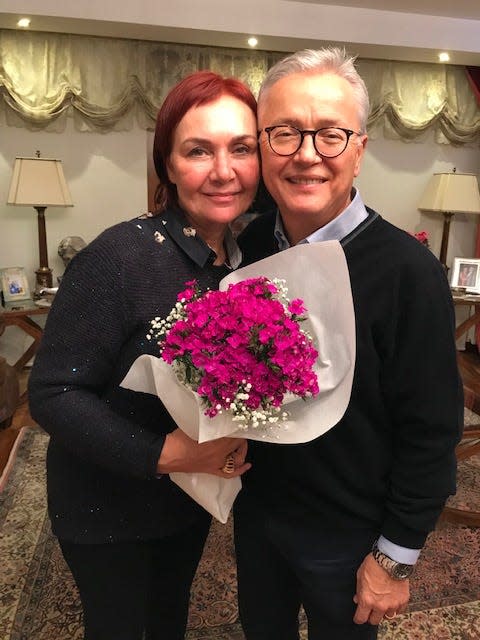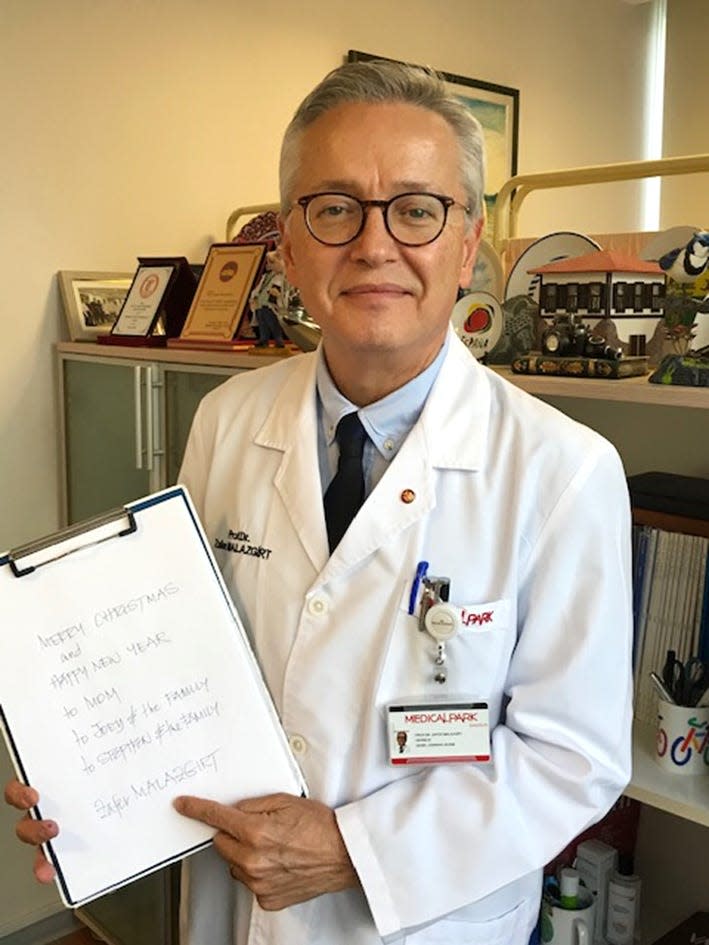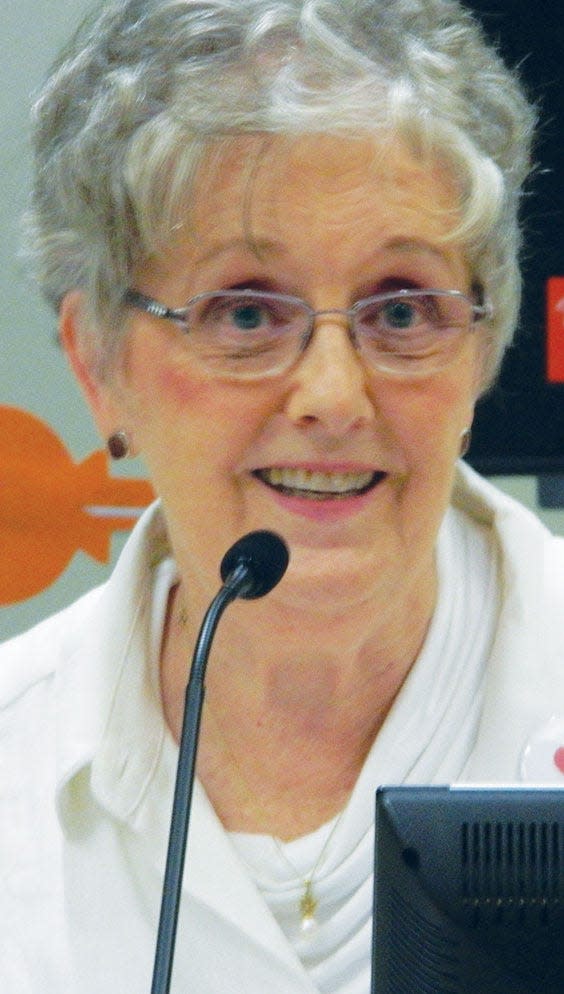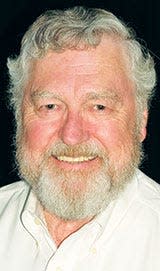The adult life of Zafer Malazgirt, AFS student: Catering manager, colorectal surgeon
Retired Oak Ridge High School teacher Benita Albert brings us insight into the American Field Service exchange student, Zafer Malazgirt, by taking us to his home in Turkey and sharing his early life there and also his medical experience. Part One was published last week.
***
Zafer Malazgirt traveled from Turkey to live in Oak Ridge with the Joel Buchanan family and join the ORHS Class of 1973. Zafer was an American Field Service (AFS) exchange student eager to travel 5,840 miles from his home in Ankara to live with an American family for a school year and to experience all things American. He was following in the footsteps of his older brother who had been an AFS exchange student in the state of Washington. Zafer said that he had very little knowledge of Tennessee and knew nothing of Oak Ridge. His research prior to arriving consisted of what little he could read in an encyclopedia.
He commented recently: “(In 1972) there were no computers, internet, or social media to use as resources. I saw a computer for the first time in Oak Ridge. … I did not know the significance of Oak Ridge.”
He remains awed by the town, recently listing some of his special memories: “All the plants and the scientists, highly educated people around me, and the experienced and helpful teachers.”
His Oak Ridge host family included parents Joel and Jane Buchanan and their sons, Joel "Joey" and Stephen. Joey was also a member of the Class of ’73 while Stephen was a sophomore at the time. It was a perfect fit. As Jane later mused, “Zafer fit in beautifully, right from the start he called us ‘Mom’ and ‘Dad.’ He freely participated in the teasing banter that was commonplace with our boys, much of this during the many pool games they played in our basement.”
More of Zafer’s Oak Ridge experiences were related in Part One of this two-part series. As promised, this second part will explore Zafer’s Turkish roots, and subsequently, his personal and professional pursuits.
Born in Antalya, Turkey, Zafer’s family moved to Ankara when he was age three. His father was a forestry engineer and his mother a homemaker. Speaking proudly of his father’s accomplishments, Zafer wrote: “He became an entomologist and worked for the protection of the Anatolian forests. … For years, he submitted hand-drawn pictures and cartoons to forestry journals and school books, and spoke at festivals addressing the importance of forest love and protection.”
Zafer enjoyed traveling with his father during summer breaks and learning more about his work, as well as improving his own drawing skills.
Zafer’s mother, Nusret, was also his teacher by her example of economic life skills.
He wrote, “She would not throw away anything, because she would most certainly reuse it for a number of other purposes. The word ‘zamkinos,’ meaning gadget, was her motto.”
Zafer observed that his mother’s resourcefulness taught him the life lesson of thinking dually: “(Thinking) in a direct way of fixing, mending, or repairing something or an alternative, gadgetry way of accomplishing an endeavor.”
Later in life, Nusret worked as a civil servant, a kindergarten teacher, and an adult educational advisor.
Zafer has two siblings, a brother, Alparslan "Alp", and a sister, Sevin. Alp worked as a chip-production engineer in the Silicon Valley before recently retiring in Kalkan, Turkey, a small town on the Mediterranean Sea. Sevin is a professor of genetics at a university in Eskisehir, a city in northwestern Turkey.
Zafer credits the self-described, “modern teaching system” adopted by his elementary school for a strong educational grounding. He wrote, “Students learned by researching, debating, and experimenting.” He said he believes that this environment taught him important study habits: to plan, organize, make presentations, and develop peer cooperation and collaboration. His post-elementary, special school admission exams qualified him for a private English education at one of six cities in Turkey. Though he had hoped for his school to be in Istanbul where his older brother was pursuing his secondary education at an American high school, Zafer was temporarily assigned to a school in Samsun, a city on the Black Sea.

The fates intervened as Zafer grew to love his new school, the excellent faculty, and one female classmate, Sibel, who would much later accept his proposal of marriage. He stayed at his Samsun school through all subsequent junior high and high school grades except for his final year when he chose an AFS student exchange in Oak Ridge. Zafer had high praise for all his teachers and the excellent education he was provided in Samsun. In particular, he was impressed by an American, Carl Tobey, who originally arrived in Turkey as a Peace Corps volunteer in 1955. Tobey chose to stay and continue teaching in Samsun College for the remainder of his career.
Zafer described his mentor, Tobey, as a role model for his young and evolving interests: “He was a botanist, a saz player (Turkish dulcimer), a backgammon player, and a contributor to the culture of the region.”
Catering manager and colorectal surgeon
Zafer’s return to Turkey in July of 1973 after his AFS year included a stopover in New York, where he completed the required Turkish university placement exams. His exam scores resulted in placement in a pre-dentistry university program. Zafer had hoped for a pre-medical/surgical education, so he chose to take the placement exams once more in 1974. The results came back to his liking, a qualifying score for medical school. Zafer told me, his ORHS Calculus teacher, that the difference in his performance the second time was the fact that his math exam was based on Calculus competency, unlike the first exam administration. He was gracious in his praise for the ORHS Advanced Placement Calculus course he felt secured his coveted future career in medicine.
Restaurant work and eventual advancement to catering manager provided needed extra income for Zafer in the early years of university training. This experience would contribute to Zafer’s later research and application of nutritional guidelines for patient care. Now, well into a long and successful career in medicine, Zafer has elected to enhance his educational resume’ further by enrolling in a culinary arts school to receive an “official cook” certification. He described the program as a three-year, three evenings per week commitment. He is currently in the second year of training.
This latest effort is driven by his work in gastrointestinal surgery issues.

He wrote, “As a colorectal surgeon, I have always been active in the proper feeding of surgical patients, and treating patients with inflammatory bowel diseases, fighting irritable bowel syndrome and pelvic floor problems. ... Healthy eating is an important part of the ‘living without inflammation’ program. The Turkish cuisine is a supreme fusion of eastern and western cuisines, and depends on the utilization of a very large spectrum of healthy vegetables, fruits, legumes, and nuts. This cooking profession may enhance my recommendations to patients for a healthier daily nutrition.”
He added, “I am a colorectal surgeon, and I deal with the gastrointestinal system. Sometimes extreme conditions occur, and we may not be able to feed a patient orally for quite a long time. At times, we must feed patients to prepare them for surgery by oral, enteral, or parenteral (IV) means. Good nutrition before and after surgery is an important and a very critical issue. I have spent much effort in improving my knowledge, skills, and applications to support my surgery. I have founded the Nutrition Education and Practice Group in my medical school, and I have run the computerized parenteral solution facility to produce our own pediatric and adult formulas, such formulas being of my own configuration. More recently, I have concentrated on feeding oncological patients in the light of new trends, namely less sugar and more fat.”
Zafer’s medical education specialized in colorectal-anorectal and hernia surgery. He described the latter: “Large abdominal wall hernias, primary or mostly incisional, are difficult to repair. The components’ separation methods are needed to repair such hernias. Sometimes they are so large that additional preoperative methods like weight loss by ketogenic diets or even sleeve gastrectomies, botox injections and preoperative pneumoperitoneum are necessary to adapt the abdominal cavity to returning volume of herniated abdominal organs.”
Zafer ran a private clinic for six years before moving to a private hospital, where he now serves as the head of the surgical department and works with a team of four surgeons. He said he has expanded his specializations to treat patients with thyroid and parathyroid diseases. He also leads the Multidisciplinary Oncology Council and Ethical Committee.
He was awarded the first international Bassini prize given by the American and European Hernia Societies in 2000. He later founded the Turkish Hernia Society (THS) and continues to serve as the secretariat of the group. In his role with the THS, Zafer has organized national and international congresses. He promoted "Hernia Days," a THS opportunity for surgeons throughout Turkey to attend lectures and observe hernia surgery demonstrations. Though he is licensed to perform hernia surgeries via medical robotics, Zafer says the very cost of such operations has not made it a popular option with patients. Since 1996 he has been an active fellow of the American College of Surgeons.
When I asked Zafer about his academic work in medicine, he provided an amazing litany of accomplishments. Some of that list included: associate professor at Ondokuz Mayis University in 1994 advancing to professor in 2000; numerous research publications in Turkish as well as 53 publications in international journals; six medical book translations into Turkish; 30 chapter contributions to medical texts; and ongoing presentations to medical groups throughout the world.
Zafer and his wife, Sibel, have been married for 43 years and have raised two children, a son, Gorker, and daughter, Balca. Both Zafer and Sibel completed medical studies at Hacettepe University in Ankara and made the mutual decision to practice their specializations in Samsun, the city where they first met as junior high classmates. Sibel is an ophthalmologist with specialized training experience in refraction disorders, contact lenses, and anterior chamber surgical issues. Both Sibel and Zafer have more than four decades of service in their professions.
Anthropology and cultural heritage interests
In his spare time, Zafer has become interested in anthropology and the cultural heritage of the Anatolian region, earlier known as Asia Minor. Anatolia is a peninsula of land that now constitutes the Asian portion of Turkey. It is the land of his father’s lifework as a forestry engineer. Expressing pride in this pursuit, Zafer wrote, “(I feel) lucky that the Anatolian lands are very rich regarding archeological and anthropological sites, ruins, and artifacts.”
“Turkey is the place where the Neolithic Revolution began. There are countless ancient places scattered all over Anatolia with fantastic clues of the evolution of human civilization. The latest excavated Gobeklitepe, a ceremonial temple of hunter-gatherers and early farmers, has drawn the history of human settlements to almost 10,000 years ago.”
Over the 50 years since he lived in Oak Ridge and experienced a year-long immersion in the American lifestyle, Zafer has kept close ties with his American family. He has visited the United States many times, not only for professional meetings, but also family trips. Likewise, the Buchanan family has traveled to Turkey. In August 1975, Jane and Joel Buchanan enjoyed traveling with Zafer on a three-week tour of central Turkey and the Aegean and Mediterranean coasts. His American brothers have also visited. Joel, a medical colleague from the University of Wisconsin, has been an invited lecturer to Zafer’s medical university cohorts in Samsun.
Stephen and his fellow ORHS International Relations Club peers were greeted by Zafer during a summer cruise stop in Istanbul in 1974.
As Zafer’s AFS year was ending, he accepted an interview with The Oak Ridger, a story which later ran under the title, “Visit Results in New Values.” The many topics discussed included Zafer’s takeaways from his American experience. After much praise for his American host family, his ORHS education, and the interest of the local citizenry in his Turkish culture, Zafer’s thoughtful answer followed. He enthused about his changed perspective of cultural roots and a new appreciation for his homeland.
Zafer: “I’m not getting ready to end this experience, but to make a new beginning. Before coming here I didn’t pay much attention to my country’s religion, traditions, or to the people in the country. Now I realize that it is important to know my own country, its history and position in the world.” (The Oak Ridger, June 7, 1973)
The world has vastly changed since 1973. Worldwide social connections are only a key click away, global travel is much more prevalent, and information resources are vast and easily accessible via the internet. However, I still believe that student exchange programs are important for sharing, appreciating, and respecting educational, cultural, and political differences. I taught many AFS students over my ORHS teaching career all of whom brought rich new perspectives to problem solving based on their previous educational preparations. AFS students taught me to think beyond the constraints of an American curriculum and to infuse their skills and insights into a richer and broader problem-solving environment. They helped me become a better teacher.
Zafer recently reflected, “My AFS memories are much clearer compared to my memories from other years. That is because my AFS year was truly a highlight of my life.” Having the honor to write Zafer’s story reminded me of the power of human bonds that form and transcend borders, distance, and time. Henry David Thoreau wrote, “Nothing makes the earth seem so spacious as to have friends at a distance; they make the latitudes and the longitudes.”
From 41.2867°N, 36.33068°E (Samsun) to 36.0104°N, 84.2696°W (Oak Ridge) there will always be a special connection.
***
Thanks Benita, for an amazing story of relationships developing in a brief experience that lasts a lifetime.
D. Ray Smith is the city of Oak Ridge historian and writes a weekly "Historically Speaking" column for The Oak Ridger.


This article originally appeared on Oakridger: The adult life of Zafer Malazgirt, AFS student: Colorectal surgeon

